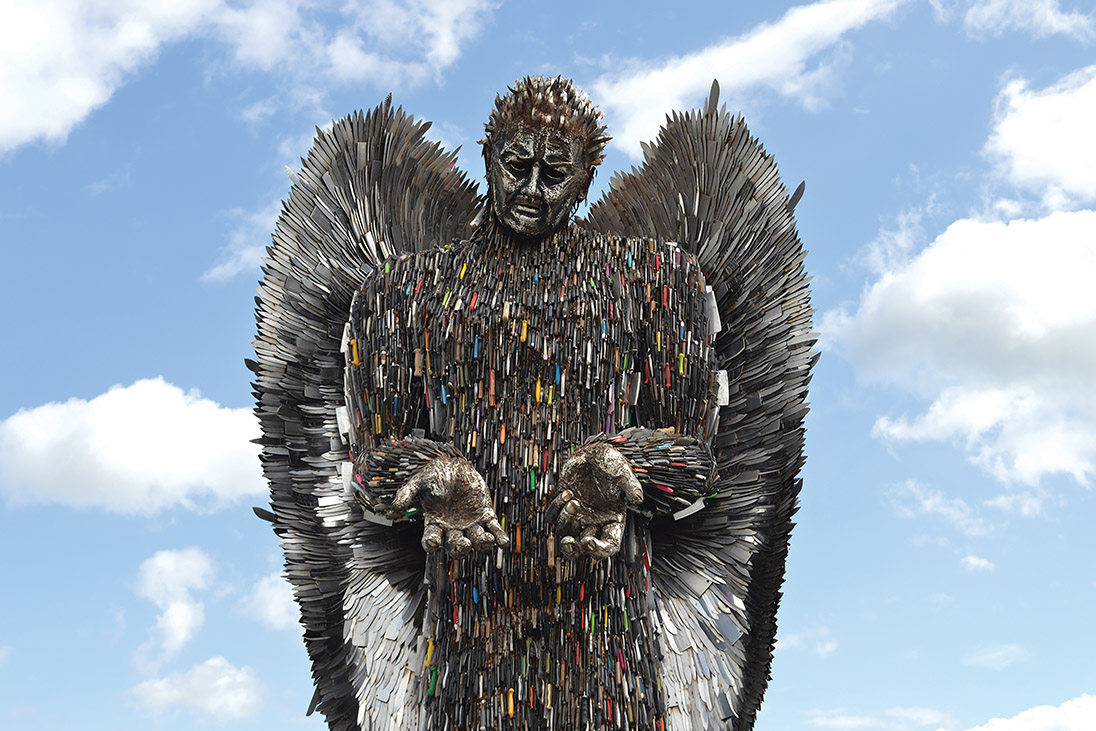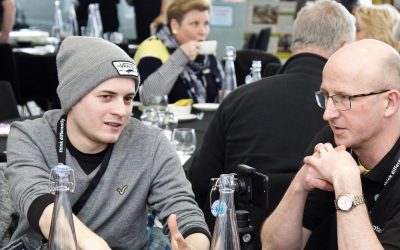Every year since 1947, Llangollen has staged one of the world’s most inspirational cultural festivals.
Around 4,000 performers and as many as 50,000 visitors converge on this beautiful small Welsh town for the International Eisteddfod to sing and dance in a unique combination of competition, performance as well as international peace and friendship.
It is here on the banks of the salmon-rich River Dee, in the shadow of the beautiful Berwyn mountains, that the Rotary Peace Award is presented.
This summer, one of the winners was Dr Waheed Arian, who was honoured for providing medical assistance through the internet to doctors working in war-torn countries.
When he arrived in the UK from Afghanistan as a 15-year-old, Dr Arian spoke very little English, had less than £100 in his pocket, and was told he would probably become a taxi driver.
Winning the award prompted an appearance on BBC Breakfast TV where he revealed that his idea was a simple one which was free and united people via technology so that expertise can be shared.
“We have volunteers from the NHS and across the globe who use smartphones and social media to give critical, life-saving advice to medics in conflict zones.” said Dr Arian, who works at Aintree Hospital in Liverpool.
“I was so surprised when I received the email to tell me I had won this Rotary award. It is a huge honour for all of us but also a huge responsibility.
“The award recognises how we bring together communities in the neutral context of healthcare and education. We go to areas where, in person, it would not be usually possible. For example, to remote areas in Afghanistan, to Syria, and Uganda, and they talk to each other.”
The project began in Afghanistan in 2015. Doctors can respond within four hours to requests for medical advice, for what is being dubbed live tele-medicine.
We have volunteers from the NHS and across the globe who use smartphones and social media to give critical, life-saving advice to medics in conflict zones.”
The other award winner at the Llangollen International Eisteddfod was Sara Rowbotham, for her work in bringing peace to the victims of the Rochdale sex abuse scandal.
Sara worked for the Rochdale Crisis Intervention Team as a sexual health worker from 2004 to 2014, tasked with identifying young people who were vulnerable to child sex exploitation.
However, she became disillusioned when under-age girls, who made claims of abuse by grown men, were being dismissed by the authorities as child prostitutes.
She became a key whistleblower which led to the conviction of nine men for sex trafficking and other offences involving 47 girls.
In 2012 she told an MP-led inquiry: “We were making referrals from 2004, very explicit referrals, referrals which absolutely highlighted for protective services that young people were incredibly vulnerable.
“It was unfortunate that it was about attitudes towards teenagers. It was absolute disrespect that vulnerable young people did not have a voice.
“They were overlooked. They were discriminated against. They were treated appallingly by protective services.
“I told everybody these children were being abused. As far as I’m concerned, I told everybody.”
This year’s winners were chosen by leading Rotary peace advocates, Jean Best and Dick Hazlehurst. Terry Waite, who is an honorary Rotary member and who was held hostage for nearly five years in Beirut while a member of the Archbishop of Canterbury’s private staff, is president of the Eisteddford.


Previous winners of the Rotary Peace Award at the International Eisteddfod include the Knife Angel, a sculpture made out of surrendered knives to raise awareness of knife crime in the UK.
The Rotary awards are the brainchild of Molly Youd from Wrexham Yale Rotary, who garnered the support of Rotary in North Wales and the Board at the Llangollen Eisteddfod.
She was inspired four years ago when witnessing Russian and Ukrainian dancers swapping partners to dance with each other whilst, back home, their countries were at war.
“It was a very poignant moment,” recalled Molly. “I felt then that we as Rotary should be doing something to recognise this.”
The first award in 2016 was given to the Eisteddfod for 70 years of promoting peace and international understanding through song and dance.
The following year, the charity Médecins Sans Frontières won for their témoignage project with refugees and the national winner in 2017 was the British Ironworks based in Shropshire for their ‘Save a Life, Surrender Your Knife’ campaign.
Molly pointed out that peace is one of Rotary International’s areas of focus: “In these troubled times, it is more important than ever that we recognise the work that goes on to promote peace and international understanding in any way,” she added.
“The partnership between Llangollen International Musical Eisteddfod and Rotary here in Wales is just one example of how we can all work together for a better world.
“We are born into this world with no hate and no prejudice.
“These are things which are learned and so can be changed by example. What better way than in song and dance and recognising the work of those who give so much to help others in need.”
If you would like to nominate a person or organisation for next year’s Rotary Peace Award, send details to Molly Youd at and include reasons why you think they should be nominated, together with any links to support the recommendation.
The closing date is March 31st, 2019.


























































